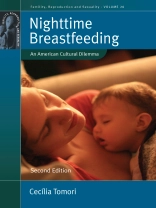New parents in the United States are caught between responding to infant needs for closeness and breastfeeding, and cultural and medical norms that emphasize solitary sleep. This anthropological investigation shows that nighttime closeness and breastfeeding are the evolutionary and cross-cultural norm, but recent sociocultural shifts produced novel ideals of separation. The book uncovers how breastfeeding parents rework these cultural ideals. In this new edition, the author describes shifting medical guidance that increasingly supports breastfeeding yet remains largely separated from infant sleep guidance. The volume also provides a path towards more equitable approaches to nighttime infant care grounded in reproductive justice.
Table des matières
List of Illustrations
Preface and Acknowledgements
Introduction
Chapter 1. Embodied Cultural Dilemmas: An Anthropological Approach to the Study of Nighttime Breastfeeding and Sleep
Chapter 2. Struggles Over Authoritative Knowledge and “Choice” in Breastfeeding and Infant Sleep in the U.S.
Chapter 3. Making Breastfeeding Parents in Childbirth Education Courses
Chapter 4. Dispatches from the Moral Minefield of Breastfeeding
Chapter 5. Breastfeeding as Men’s “Kin Work”
Chapter 6. Breastfeeding Babies in the Nest: Producing Children, Kinship, and Moral Imagination in the House
Chapter 7. Time to Sleep: Nighttime Breastfeeding and Capitalist Temporal Regimes
Conclusion
Appendixes
Bibliography
Index
A propos de l’auteur
Cecília Tomori is Associate Professor at the Johns Hopkins School of Nursing with a joint appointment at the Johns Hopkins Bloomberg School of Public Health’s Department of Population, Family and Reproductive Health. She is the co-author of the 2023 Lancet Series on Breastfeeding and is the co-editor of two additional books, Breastfeeding: New Anthropological Approaches (Routledge 2018), and The Routledge Handbook of Anthropology and Reproduction (2022).












